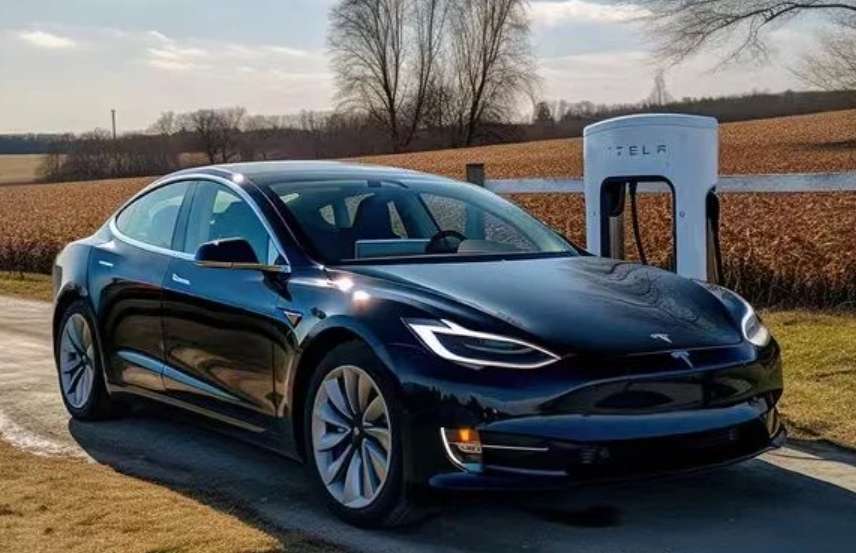Tesla's European Sales Plummet
Advertisements
On February 26, 2023, a significant upheaval in Tesla's stock price has left many investors reeling, as evidence emerged that the company’s sales figures in Europe have suffered an alarming decline. Specifically, reports revealed that Tesla’s vehicle sales in the European market had been halved, marking a critical juncture for a corporation that has long been viewed as a leader in electric vehicles (EVs). This staggering announcement drove Tesla's market valuation back below the $1 trillion mark after hovering above it for three months.
Long-term investors in Tesla are starting to express extreme pessimism about the future prospects of the company. They cite the rapid ascent and aggressive strategies of competitors such as BYD and other Chinese electric vehicle firms as significant threats to Tesla's once-dominant market position. The shifting landscape in the global automotive sector, particularly regarding EVs, has created a turbulent atmosphere for Tesla, previously regarded as virtually untouchable.
The abrupt plunge in Tesla's sales figures in Europe comes as a shock, especially when juxtaposed against the overall growth of the electric vehicle market in that region. According to the European Automobile Manufacturers Association, in January 2023, Tesla's sales were recorded at a mere 9,945 vehicles—a staggering 45% decrease compared to the same month of the previous year. In addition, Tesla’s share of new car registrations in Europe plummeted from 1.8% to just 1%. This alarming downturn cannot be attributed merely to difficulties within the European market; alternatively, during the same period, the overall sales of new electric vehicles in Europe surged by 37.3%, indicating a flourishing market that Tesla seems to be struggling to keep up with.
This stark contrast raises questions about Tesla's competitive edge in the European market. While the broader landscape for EVs continues to thrive, Tesla's declining numbers paint a difficult picture. As a result of this news, the company’s stock saw a decline of over 10% in after-hours trading, reaching a low of below $300 per share. By the close of trading, the stock had settled at $302.80, reflecting a daily drop of approximately 8.39%. Consequently, Tesla's market capitalization fell to approximately $974 billion, marking its lowest point since November of the previous year.
The broader financial community has taken notice of Tesla’s struggles. Earlier in February, Bank of America reassessed Tesla's rating, downgrading it from “Buy” to “Neutral.” Analyst John Murphy and his team pointed to Tesla’s increasingly high valuation as well as imminent operational risks as central to their decision-making process regarding this downgrade. For context, even with Tuesday's pronounced drop, Tesla still maintained a price-to-earnings (P/E) ratio of 112, standing in stark contrast to its American competitors, Ford and General Motors, with P/E ratios of just 8 and 7 respectively.
One traditionally insurmountable hurdle for Tesla in Europe has been the rapid rise of its competitors, particularly companies from China. Tesla's troubles are not merely relegated to January 2023, as recent data indicates a 13% annual decline in Tesla’s sales across the European Union. Even more alarming is that in Germany, one of its key markets, Tesla saw a catastrophic 41% drop in sales. In January, the company registered only 1,277 new cars—its worst monthly figure in Germany since mid-2021.

The evolving public sentiment and challenges posed by competitors have played pivotal roles in this stagnation for Tesla. Chinese automakers have rapidly advanced their technology and bolstered their product offerings, making it increasingly difficult for Tesla to maintain its traditionally dominant market share. Take SAIC Motor Corporation as an example; this company has led the surge in car registrations across Europe, with a staggering 37% increase in new vehicle registrations in January alone. Their MG brand has gained considerable traction, offering competitive pricing and diverse products that resonate with European consumers.
Ross Gerber, CEO of Gerber Kawasaki Wealth Management, opines that the decline in sales may bring long-term hardship for Tesla’s stock. Noteworthy factors contributing to this apprehension include CEO Elon Musk’s divided attention due to his ventures in the political sphere and ongoing concerns regarding Tesla’s full self-driving technology, which has yet to reach the expected level of sophistication.
He elaborated, citing sales issues as one major reason he foresees Tesla's stock potentially plummeting by 50% within the year. Furthermore, he highlighted the rapid growth of local Chinese electric vehicle brands such as BYD as central to Tesla's difficulties beyond just the China market.
“BYD is such an excellent company; everyone in emerging markets is buying BYD,” Gerber remarked, underscoring the competitive pressure that is forcing Tesla to recalibrate its strategies in both Western and emerging markets alike. As initiatives for enhancing local electric vehicle production gains momentum in China, companies like BYD pose a significant challenge for Tesla, demonstrating proficiency in target markets outside of China, thereby creating intense competition for Tesla's offerings.
As this dynamic unfolds, it remains essential for industry stakeholders and investors to monitor how these challenges will impact Tesla's strategic responses and operational approaches moving forward. How Tesla reacts to this shifting competitive landscape will determine not only its immediate future but also its long-term viability in an increasingly crowded electric vehicle market—one that is evolving rapidly and presenting new challenges for even its most formidable players.
Leave A Reply